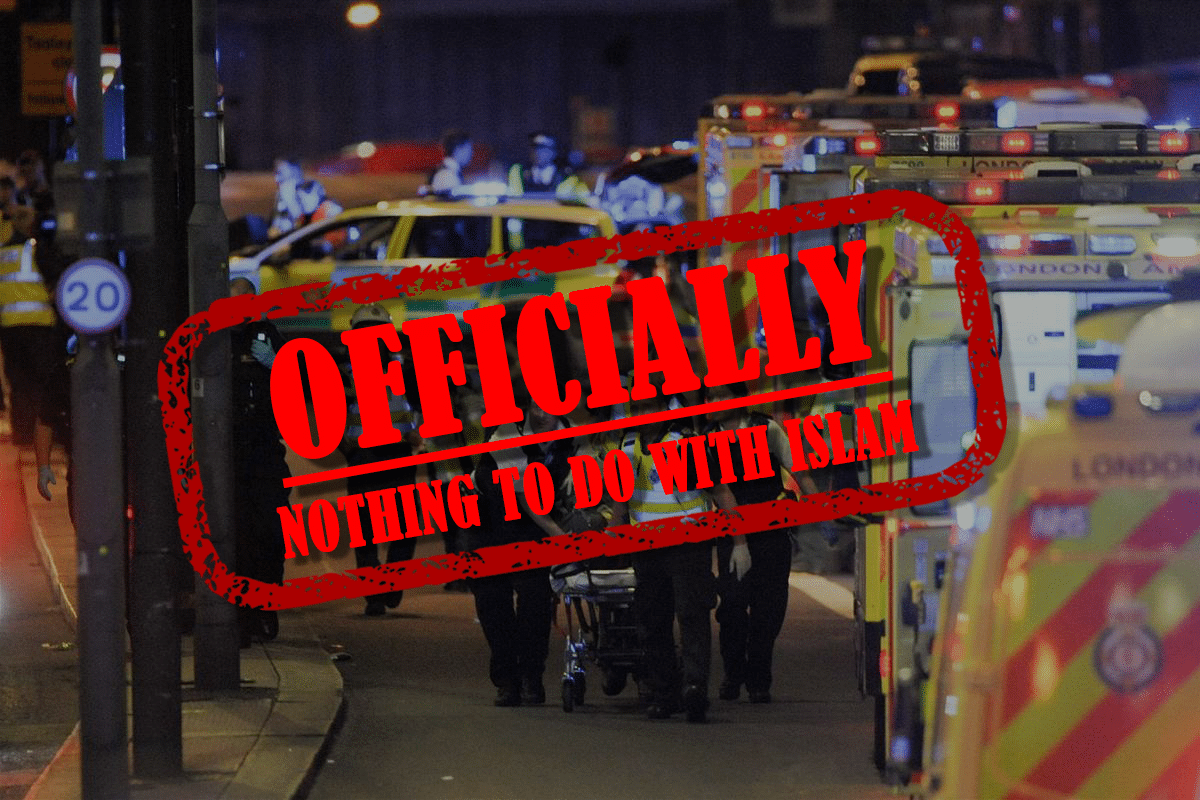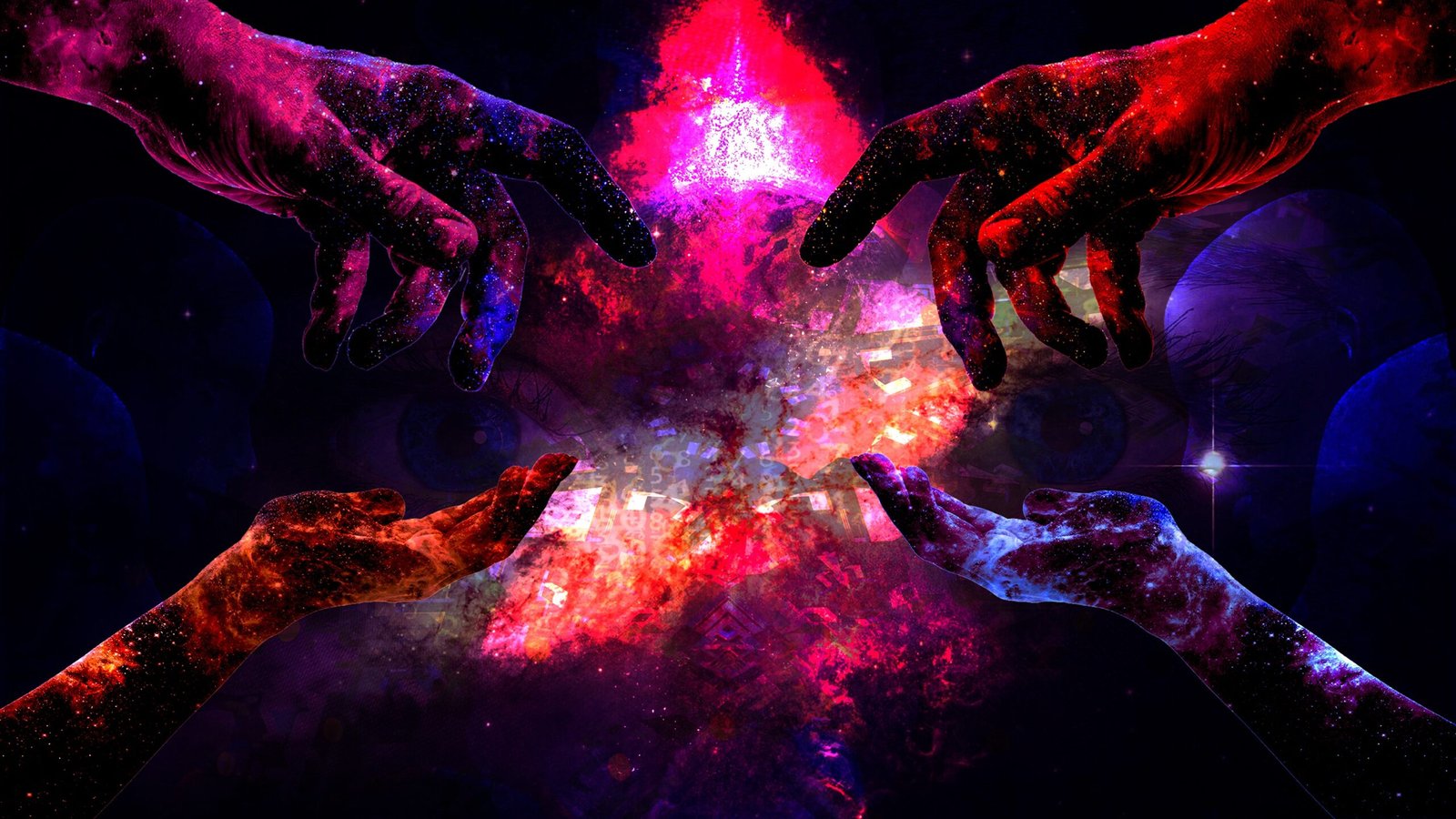Last month, following the cowardly and tragic Manchester attacks, a weary and scarred Britain pulled itself together and sent out yet another message of strength and solidarity. So did we, in urging collective caution and honesty in the response. But today, after another pointless act of savagery stained with the hatred of an enemy, it’s time to dispense with some of the tiresome cliches that are a feature of our response. They waste public time, energy and redirect attention. They lead to endless debates on the internet and are driving western society apart. For another, they insult and deride the memory of those who have pointlessly lost their lives. This violence shows no signs of abating, and our response has to be definitive, resolute and must absolutely avoid some of these common disagreements.
1. This has “Nothing to do with Islam”
Let us stop saying “This has nothing to do with Islam”. To refrain from saying this oft-repeated line is not Islamophobic, nor is it bigoted. To stop saying it also does not demonise or taint an entire community of Muslims, and everyone agrees that not all Muslims are radical. But, we can and must debate the extent to which the Islamic religion played a role in influencing the ideology of the terrorists, and it is by no means a decisive answer. What we do know is that the attackers invoked the name of Allah when carrying out their deeds. Whether we like it or not, whether peaceful Muslims agree or not, their Islamic faith has clearly been a factor in their decision to murder. Dismissing it as the warped self-perception of a terrorist, simply because not all Muslims are terrorists, is childishly counter-productive. The goal must be to untangle how, and why their religious ideology contributed to the making of a murderer, not to excise it from the analysis for fear of prejudice. To say “this has nothing to do with Islam” as a knee jerk response is just insulting – it is insulting to the children, men and women who died last week, and it is insulting to the families who will be shell-shocked and reduced to numb grief today. Even so, if one must make the argument, make it in more than 140 characters after the families, society and the country is able to recover. This is not the time for grandstanding.

I am well aware of why people make this standard argument – to stem the backlash they fear is coming. So pundits, editors, well-meaning individuals declare their openness and high-thinking tolerance, hoping that others will follow suit. Regrettably, let’s face it – the time for principled piety is past. The rift in society on this matter now goes so deep that anyone who does blame Islam is in no mood to either listen to these statements, or greets them with utter derision and scorn. It would not be inaccurate to say that the phrase “religion of peace” is now being largely used sarcastically and as a metaphor for an object of mockery – a process fuelled by the constant use of the phrase to lift blame from Islam. Dismissing it as right-wing bigotry just denies the reality of how much these messages are resonating. At this point, you haven’t just lost the people who are angry, but even those who are grieving and bewildered – this standard response just convinces them that the Government and society refuses to confront the problem for what it is. Victims, their communities, and society as a whole deserve better than another set of columns criticising western society for even voicing this thought. Normal lives are under attack – treat it as such.
2. Feel-Good Hashtags and Calls to Carry on as Normal
Let us also, briefly, arrest the platitudes – about “survival”, about “solidarity”, “unity”, “love over hate”, etc. That frisson of warmth and strength that courses through us when we whisper and join in these choruses may well serve to help us through the day. That brave hashtag #lovewillwin or #wewillsurvive or #unitedwestand could serve to highlight a bright spot for and in humanity when things seem dark. But it is also cowardly and rooted in denial. It is frightening to admit that terrorists have begun to strike us in our midst, in daily lives of a world shielded from war. It is limiting to imagine that we might be cut down during our metro ride or shopping, so we join in a chorus that promises a return to what was. But we fail to understand that things will never be the same for the families of those who have lost loved ones to these horrific attacks, and too often, our rush to make society and ourselves feel better about it skips over their irreversible grief, the loss of those whose lives are blighted by this senseless hatred.
We might well be alright, but they won’t be – nor will they in the near future. Perhaps it is time we do the right thing and allow societies to grieve and acquire a sense of closure from the pain the barbaric malefactors inflicted, instead of blusteringly rushing to social media in symbolic bravado, just to show the terrorists that “they can’t win”. Then perhaps our response will be as effective as it should be.
3. Unconnected Equivalences in a Guilt-Ridden Response
Our response should not give into the temporary thrill of correcting the right-wing, by misrepresentation and misuse of incomplete statistics, or of unconnected equivalences. Let’s refrain from the utterly pointless retorts, saying “You are more likely to be killed by a drug addict than by a refugee” or, “More people are killed in gun violence than by religious fundamentalism”.

Firstly, the merit and accuracy of such statistics can always be debated, and they are – in forums fuelled by rage and scorn, that are further disturbing social harmony. The comparison between gun violence and Muslim extremism, for instance, focuses on the number of perpetrators in the case of religion-inspired terrorism, but focuses on the number of victims in the case of gun violence. Such comforting figures also often don’t break down the numbers as they should be, in accordance with statistical rigour. Gun violence, for instance, includes those killed in gang violence, in cities rife with crime, in premeditated murders, etc. None of which are comparable to being mowed down in a mall or bridge.
But perhaps more importantly, is that the public doesn’t care. They don’t. This is not an indictment of our psyche – as humans, our response to threats around us is based on our perception of how normal or unavoidable it is. It may be true that more people die in car crashes than in plane crashes, but the human mind doesn’t react to numbers; it reacts according to the extent to which an act deviates from what is the norm. A car crash is ordinary; a plane crash, ending the lives of 400 odd people, is not. Similarly, a crime-induced knife fight is an inevitable part of society, sadly, whereas radicalised individuals stabbing strangers mercilessly on a street is not. If the latter is “normal”, then we have a bigger problem. Several studies have explained why Jihadi terrorism is more outrageous and hence urges a stronger response than, for example, medical malpractice. It is unhelpful, foolish, and achieves no purpose except for liberals to fault policy. and only results in such fears being left to fester in darker and more grotesque corners.
4. Fallacy of the single cause attribution

Another curious trend in the standard response is to try to find one explanation for this behaviour – whether it be religion, mental illness or foreign policy. We should remember that very little criminal behaviour, particularly violent criminality, is capable of being distilled to one single cause or overarching factor and that the sequence of events and influences that culminate in such vile actions is never so easily reducible. If we accept that a multitude of crisscrossing influences are the problem, maybe our response will also be appropriately multi-pronged. In this particular case, it is self-destructive to deny that religion shapes one’s values and morals – in fact, it is frequently touted as the most compelling argument in religion’s favour. It is also laughably obtuse to pretend that one’s faith does not determine one’s perception of, and interaction with, the outside world. Moral aberration alone however does not make a monster. Culture, and political leanings also play a definitive role, and the more one dissociates and views oneself as separate from the larger community, the easier it is to dehumanise them. This societal dissociation is fostered and encouraged when immigrant minorities cling to their original identities and romanticised notions of a life they fled, while emphasising the cultural differences with their host community. Political actions, such as foreign policy, also play a role, particularly when fed as propaganda, but to describe it as the sole cause, or even main cause, is utterly dishonest and an obstacle to proper solutions.
5. The Manipulation of Grief by Comparison
Lastly, it has now become fashionable for certain outlets and news agencies to compare casualties of Islamist terrorism in the West and in the East and to say, “more people are still dying in Muslim majority countries” as if that woefully unnecessary analogy justifies lesser attention to the attacks in the West, or balances historical grievances. Or, they gleefully point out the relative difference in media coverage and claim that grief on social media indicates only white lives matter. This, is perhaps the most astoundingly cheapening trend of all. Very few inherently consider that the lives of persons in one country is more valuable than the other. But again, a human collective’s response is based on what is generally regarded as ‘normal’. It is still a greater shock to unconnected populations, be they in Asia or America when terror strikes London or Paris, because these are in the relatively safe developed world. A similar response to deaths in Afghanistan is unlikely, simply because outsiders perceive it as a country at war and are therefore not as shocked, if as sad. It is grim news, to be sure, but it does not engender fear the way an attack in London or Paris does, since these strike very close to home.
As for unequal media coverage, it almost seems as if the champions of this view expect all communities to be as agonised by the suffering of foreigners than of their own neighbours. Such an expectation is idyllic and wholly unrealistic. Of course people are more aggrieved by deaths closer to home than further afield, of people they identify with rather than strangers thousands of miles away. Are we really angry about that? Attributing racism and racial superiority in measuring the value of death is terrifyingly reductive, paints a false narrative and further fuels resentment. To headline a piece by saying “80 people died in X place, but you didn’t hear about it because it is in the West” is a tactic that should not be resorted to even by paparazzi – yet significant media organisations now routinely manipulate non-white audiences into anger at the response to different attacks. Such a representation is inaccurate, misleading, and disgustingly superior – as pointless as it is unhelpful.
There is obviously a very complex and delicate process that we need to muddle through. Distractions, unnecessary arguments and silly declamations from a soap box of moral superiority is something the world can do without.









Article Discussion